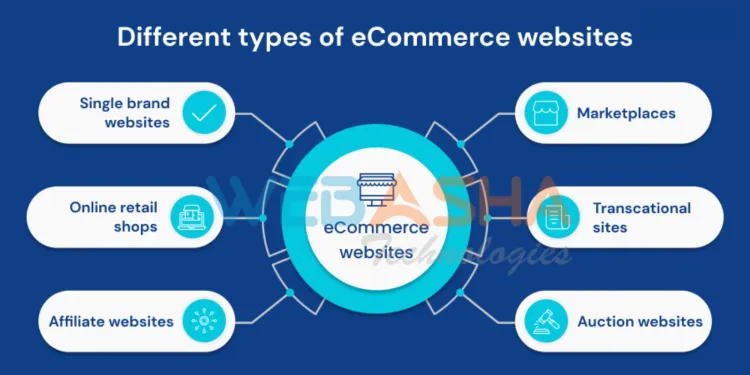Why eCommerce Websites Need Extra Security Features for Customer Trust
The blog emphasizes the importance of robust security features for eCommerce websites to maintain customer trust and safeguard sensitive data. It highlights major risks like data breaches, phishing attacks, and payment frauds, while underscoring the role of measures like SSL certificates, two-factor authentication, and regular security audits. Ensuring compliance with regulations such as GDPR and providing a secure shopping experience not only protect customers but also boost business reputation and loyalty. The blog concludes by stressing that in today's competitive landscape, security is a critical pillar for the success of any eCommerce platform.

In the rapidly growing world of eCommerce, online businesses face significant security challenges. Customers entrust these platforms with sensitive information such as credit card details, personal data, and addresses. To maintain customer trust and loyalty, eCommerce websites must implement robust security features. Let’s explore why these features are crucial for ensuring customer confidence and safeguarding business reputation.
What Are the Security Risks in eCommerce?
-
Data Breaches: Hackers target eCommerce sites to steal sensitive customer data.
-
Phishing Attacks: Customers may fall victim to fake websites or fraudulent emails.
-
Payment Frauds: Cybercriminals exploit vulnerabilities in payment systems to conduct unauthorized transactions.
-
Account Takeovers: Weak or reused passwords make user accounts susceptible to hijacking.
-
Malware Infections: Malicious software can compromise site functionality and customer data.

Importance of Security Features for eCommerce Websites
1. Protecting Customer Data
Strong security measures, such as SSL certificates and data encryption, safeguard customer information during transmission, preventing unauthorized access.
2. Building Customer Trust
Customers are more likely to shop on a website that visibly prioritizes security through trust indicators like security seals and multi-factor authentication (MFA).
3. Preventing Financial Losses
Fraudulent activities can lead to chargebacks, fines, and financial damage. Anti-fraud systems help minimize these risks.
4. Compliance with Regulations
Laws like GDPR and PCI-DSS mandate strict data protection measures, ensuring customer privacy and reducing legal liabilities.
5. Enhancing User Experience
A secure shopping experience minimizes disruptions, such as account lockouts or fraudulent alerts, leading to higher customer satisfaction.
Key Security Features for eCommerce Websites
-
SSL Certificates
Ensures secure communication by encrypting data between the browser and the server. -
Two-Factor Authentication (2FA)
Adds an extra layer of security by requiring a second form of verification. -
Regular Security Audits
Identifies vulnerabilities and ensures compliance with the latest security standards. -
Secure Payment Gateways
Protects customer transactions by using encrypted and tokenized payment systems. -
Firewalls and Anti-Malware Tools
Shields the website from malicious attacks and unauthorized access.
How Security Features Build Customer Trust
-
Visible Security Indicators: Features like lock icons in the browser address bar signal a secure website.
-
Transparency in Security Measures: Clearly communicating the security steps taken helps customers feel confident.
-
Fast Response to Incidents: Quickly addressing security breaches demonstrates a commitment to protecting customers.
-
Consistent Updates: Regular updates to security protocols reassure customers about ongoing protection.
Consequences of Poor Security
-
Loss of Customer Trust: Even a minor data breach can lead to significant reputational damage.
-
Financial Penalties: Fines for non-compliance with regulations can cripple a business.
-
Reduced Sales: Customers may avoid shopping on platforms perceived as unsafe.
Conclusion
Security is no longer an optional feature for eCommerce websites; it is a fundamental necessity. By implementing robust security measures, businesses can protect customer data, enhance trust, and drive long-term success. In a competitive online marketplace, prioritizing security translates to building a loyal customer base and ensuring sustainable growth.
FAQ:
-
What are the major security risks for eCommerce websites?
Common risks include data breaches, phishing attacks, payment frauds, account takeovers, and malware infections. -
Why is customer trust important in eCommerce?
Trust encourages repeat business and ensures customers feel safe sharing their personal and financial information. -
How does SSL encryption enhance eCommerce security?
SSL encrypts data transferred between the user’s browser and the server, protecting it from interception. -
What is multi-factor authentication (MFA)?
MFA requires users to verify their identity using two or more steps, adding an extra layer of security. -
How do secure payment gateways protect transactions?
These gateways use encryption and tokenization to safeguard payment information, preventing unauthorized access. -
What happens if an eCommerce website lacks strong security?
It risks data breaches, financial losses, reputational damage, and possible legal penalties. -
How can visible security indicators build customer trust?
Indicators like the lock icon in the address bar assure customers that their data is secure. -
What regulations must eCommerce websites comply with?
Key regulations include GDPR for data privacy and PCI-DSS for secure handling of payment information. -
Why are regular security audits essential for eCommerce?
Audits identify and address vulnerabilities, ensuring that security measures are up to date. -
How does a secure website enhance user experience?
It provides smooth, uninterrupted transactions and protects users from fraud or account issues, leading to higher satisfaction.











![Top 10 Ethical Hackers in the World [2025]](https://www.webasha.com/blog/uploads/images/202408/image_100x75_66c2f983c207b.webp)

![[2025] Top 100+ VAPT Interview Questions and Answers](https://www.webasha.com/blog/uploads/images/image_100x75_6512b1e4b64f7.jpg)









